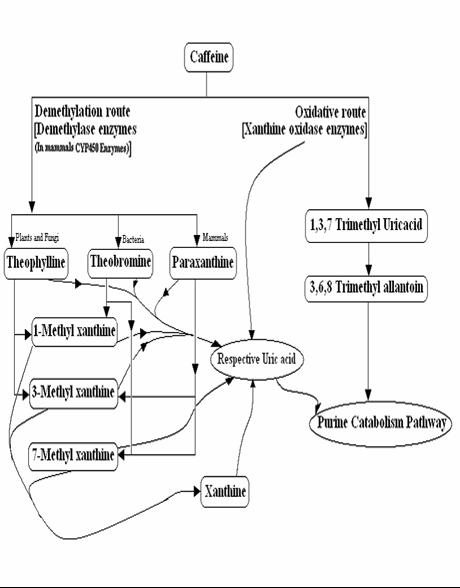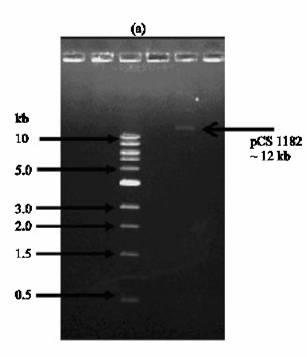|
Microbial and enzymatic methods of caffeine removal is still a challenging problem because (i) very less strains are available that can resist high caffeine concentration and (ii) the enzymes involved in caffeine degradation (demethylases) were not characterized and sequenced. Our long term goal is to identify the enzymes and develop a process for decaffeination.
In this aspect, we have isolated a strain of Pseudomonas closely resembling Pseudomonas putida that can tolerate high caffeine concentration (~10 g/l caffeine). We found that major pathway is demethylation: caffeine to theobromine to 7-methyl xanthine and to xanthine. The degrading ability has been shown to be borne on a 12kb plasmid (pCS1182). Further research on this strain will be focused on studying the key enzyme(s) involved in the degradation process, its localization, purification and characterization Sequencing of the plasmid and subsequent identification of the genes involved in degradation pathway are also included in future research plans.
|
|


|

